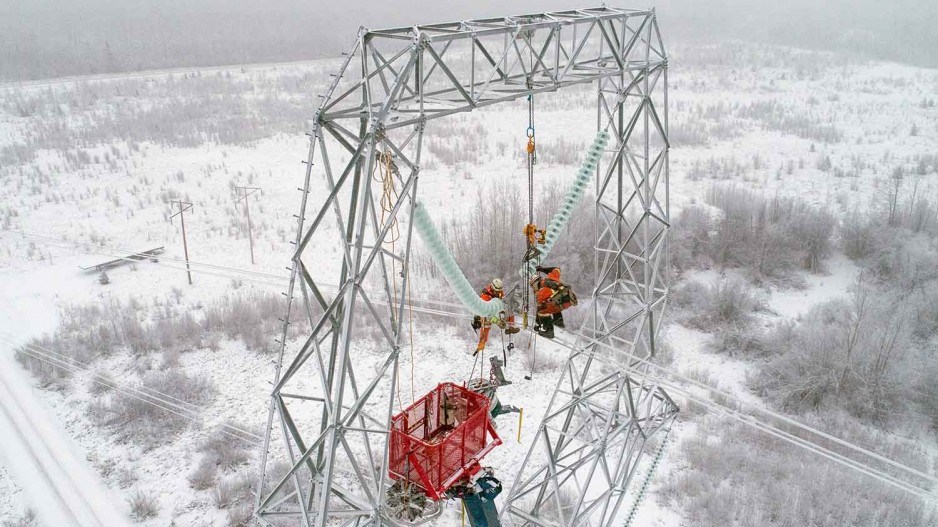Sustainability Week: Sustainability in the age of AI, navigating the PC refresh challenge

Skip to main content Tech Radar Pro Tech Radar Gaming Tech Radar Pro TechRadar the business technology experts Search TechRadar View Profile België (Nederlands) Deutschland North America US (English) Australasia New Zealand Expert Insights Website builders Web hosting Best web hosting Best website builder Best office chairs Expert Insights Sustainability Week: Sustainability in the age of AI, navigating the PC refresh challenge Louise Quennell 21 April 2025 Embrace AI and reduce e-waste with sustainable PC refresh When you purchase through links on our site, we may earn an affiliate commission. Here’s how it works. (Image credit: Dell) The upcoming PC refresh cycle is shaping up to be one of the most pivotal tech moments in recent years. Aging PC fleets are past their prime, and the end of Windows 10 support is on the horizon. From small businesses to global enterprises, upgrading to systems that can support AI tools and the enhanced functionality of Windows 11 will be essential to maintain a competitive edge. As such, organizations face a potential tidal wave of upgrades, and with it, potentially significant costs – both financial and environmental. The complexity of managing such an upgrade without compromising your business’s environmental responsibility can be daunting. But it can be done. Thankfully, sustainable practices appear high on the agenda for many businesses. Customers across all verticals are implementing circular IT practices to minimize waste and costs. According to new research, Eighty-four percent of IT and business decision makers agree that circularity in AI hardware is an important consideration in their IT asset management system. You may like What data centers should consider to establish more sustainable operations Digital twins: propelling sustainable data centers Eighty-seven percent also agree that sustainable design and energy efficiency are key factors when selecting solutions. Simultaneously, however, 81% admit needing help from a third-party partner to achieve their sustainability goals, suggesting a gap between good intention and the ability to deliver. Louise Quennell Social Links Navigation CSG Director at Dell Technologies, UK. The High Stakes of Ignoring Sustainability E-waste is a growing issue. According to the WHO, in 2022, an estimated 62 million tons of e-waste were produced globally and only 22.3% was documented as formally collected and recycled. Electronics discarded irresponsibly often end up in landfills, leaching toxic chemicals into the earth and water, posing a threat to health and the environment. Beyond the environmental considerations, sustainability is also a competitive differentiator, particularly within the public sector. Customers are paying attention to how companies incorporate environmental responsibility into their operations. Choosing not to lead in this space could mean losing out to competitors who are already making strides toward more sustainable practices. Championing Circular Design and Sustainability There is, however, a way forward. IT providers that adopt circular design principles like repairability, upgradability and modular components are paving the path toward a more sustainable future. PCs designed with replaceable batteries, screens and other components empower businesses to extend the lifespan of their devices, reducing waste and postponing costly replacements. Design decisions like attaching ports with screws, rather than soldering directly to the motherboard simplifies the disassembly process. This enhances the potential for repairs or replacements without risking damage to critical hardware components. Some vendors are now taking this one step further, making it easier for customers to purchase and replace common PC parts themselves. Customers can even access augmented reality tutorials with step-by-step instructions. Democratizing access to repairs in this way can significantly reduce e-waste and the resulting environmental impact. At the same time, manufacturers are pushing the boundaries of material innovation by incorporating recycled aluminum, biobased plastics and other renewable materials into their designs. Carefully sourced components are emerging as sustainable alternatives, helping to reduce the environmental footprint of new devices. Keep in mind that circularity and sustainability don’t end with the PC – it’s possible to lower the environmental impact of peripherals, too. Recycled plastic in docks, recycled cobalt in batteries and even recycled copper in adapter cables help reduce resource use and lower emissions. Energy efficiency is another critical element of sustainable design, particularly as AI integration becomes a key driver of the PC refresh. Modern AI-optimized hardware and software are designed with power-saving features like intelligent energy management and thermal regulation. These innovations not only lower a company’s environmental footprint but also deliver tangible operational cost savings by extending battery life and optimizing processing speeds. Many manufacturers are also doubling down on closed-loop systems to recover valuable materials from outdated devices. Robust recycling programs minimize landfill waste and contribute to a circular economy where resources are reused rather than discarded. Partnering now for Tomorrow Businesses do not need to face this challenge alone. Partnering with IT providers and third-party experts can make the difference. In fact, 84% of IT and business decision makers agree that collaborating with a 3rd party would simplify their efforts to carry out circular IT practices. Asset recovery solutions and recycling services enable companies to dispose of outdated equipment responsibly while extracting value from old resources. Flexible payment solutions further enhance sustainability by allowing companies to optimize asset management and reduce upfront costs, ensuring that investment in sustainable technology is also financially viable. Practical Steps Toward Sustainability For organizations eager to balance AI integration with environmental responsibility, the upcoming PC refresh is an opportunity for action. Businesses should begin by choosing IT partners and providers that prioritize circular design, emphasizing products designed for longevity, repairability and efficiency, and that incorporate sustainable materials. Exploring asset recovery solutions and recycling services to retire outdated equipment responsibly and reduce e-waste can also pay dividends. If there is still value in old equipment, asset recovery solutions can resell and transfer funds straight into a company bank account. Investing in AI-optimized PCs drives efficiency, enhances productivity, and improves security, but also positions businesses for cost savings and reduced energy consumption. For example, just having the ability to turn off devices remotely can save up to 15% on energy usage. By adopting sustainable IT solutions today, companies can ensure they’re equipped for tomorrow’s challenges while contributing to a more responsible and environmentally conscious tech ecosystem. The PC refresh cycle will inevitably define the next decade of IT strategy. Organizations that take bold steps to prioritize sustainability now could gain the operational and competitive benefits of aligning technology with responsible business values. We list the best business computers. This article was produced as part of TechRadarPro's Expert Insights channel where we feature the best and brightest minds in the technology industry today. The views expressed here are those of the author and are not necessarily those of TechRadarPro or Future plc. If you are interested in contributing find out more here: https://www.techradar.com/news/submit-your-story-to-techradar-pro Are you a pro? Subscribe to our newsletter Sign up to the TechRadar Pro newsletter to get all the top news, opinion, features and guidance your business needs to succeed! Contact me with news and offers from other Future brandsReceive email from us on behalf of our trusted partners or sponsorsBy submitting your information you agree to the Terms & Conditions and Privacy Policy and are aged 16 or over. Louise Quennell Social Links Navigation CSG Director at Dell Technologies, UK. You must confirm your public display name before commenting Please logout and then login again, you will then be prompted to enter your display name. What data centers should consider to establish more sustainable operations Digital twins: propelling sustainable data centers AI-ready data centers: how to integrate design, sustainability, and people The role of automation in achieving sustainability goals Sustainability Week: How AI boosts digital advertising performance while cutting CO2 emissions 4 key trends redefining the IT landscape Latest in Pro Sustainability Week: Sustainability in the age of AI, navigating the PC refresh challenge AI demand is causing huge sustainability problems - and hard drives over SSDs could be the answer Sustainability Week: How AI boosts digital advertising performance while cutting CO2 emissions Microsoft reveals major sustainability "zero-waste" goal reached Sustainability Week: Telecoms’ winding road to net zero Hands on: I tested the Netgear WAX220 - read what I thought of this Wi-Fi 6 AP Latest in Opinion Sustainability Week: Sustainability in the age of AI, navigating the PC refresh challenge Sustainability Week: How AI boosts digital advertising performance while cutting CO2 emissions Sustainability Week: Telecoms’ winding road to net zero Is AI bad for music or is it just another step in the auto-tune timeline? How to become an intrapreneur in AI headwinds Super apps deserve a second chance LATEST ARTICLES Google Photos is letting you add Ultra HDR magic to your images after you’ve taken them AI demand is causing huge sustainability problems - and hard drives over SSDs could be the answer “It is up to you to figure out how to use it to make the best version of yourself" - Zendesk Chief Legal Officer on how any company can get involved with shaping the AI industry How to get your Airwrap curls to hold, plus more top tips for getting the most from your Dyson multi-styler Microsoft reveals major sustainability "zero-waste" goal reached TechRadar is part of Future US Inc, an international media group and leading digital publisher. Visit our corporate site. Contact Future's experts Terms and conditions Privacy policy Cookies policy Advertise with us Web notifications Accessibility Statement Future US, Inc. Full 7th Floor, 130 West 42nd Street, Please login or signup to comment Please wait...

















